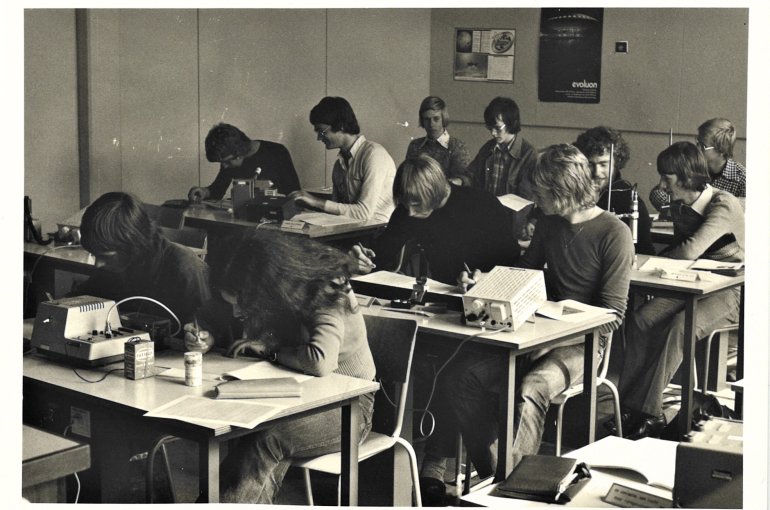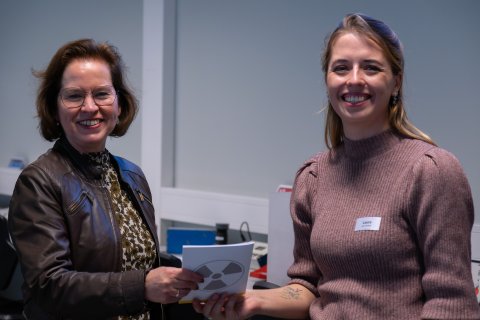Fifty years of Utrecht radiation practicals at secondary schools
Utrecht Freudenthal Institute celebrates anniversary

It was fifty years ago this week that Utrecht physicists started giving a practicum with radioactive substances at secondary schools. Today still, they visit half of all secondary schools in the Netherlands every year with this ionizing radiation practical (ISP). By now, more than 600,000 students have performed the experiments. To celebrate the milestone, Dean Isabel Arends will receive a special edition of the practicum book on Thursday, 17 November.
Tradition
"On a standard morning, we set off with three cars full of equipment and a supervisor to three different secondary schools in the Netherlands," says Rob van Rijn, who is one of the supervisors. "Once there, together with teachers and toas from the school, we set up over twenty experiments. Then come the students who, over a two-hour period, each perform three experiments in the categories of half-life, absorption and X-rays. When the first group is finished, two to three more will follow." According to Professor Wouter van Joolingen, project leader since 2014, the practical has become a tradition in many schools. "The material is part of the exam programme and the ISP offers the only opportunity to experiment with it."
The material is part of the exam programme and the ISP offers the only opportunity to experiment with it
Radioactive substances
The ISP was created in 1972 by the Utrecht Department of Physics Didactics, which has since merged into the Freudenthal Institute. At the time, the need arose in secondary schools to conduct experiments with radioactive substances. Radioactivity was a hot topic and it became part of the exam material. However, schools had difficulty organizing a radioactive practical on their own. Radioactive substances are not allowed to be stored at a school, nor are they allowed to be worked on without the proper credentials. Initially, students visited the university to do the experiments. Then the practicum supervisors went to the schools.
Investigative learning
The practical has not remained the same over the years. It is constantly evolving. "The first editions of the ISP were based on the didactics of those days, which were strongly teacher-driven," said associate professor Ralph Meulenbroeks, who researched the effectiveness of the ISP. "In 2008, the so-called 'open' variant of the practicum was introduced." Step-by-step instruction was replaced by global directions and lots of room for personal input. Students now formulate their own research questions, work out a plan, take measurements and interpret the data. Meulenbroeks' research showed that students found this variant of the ISP more useful and enjoyable. In other words, their autonomous motivation had increased, which in turn ensures better results.
Celebration

In honor of the 50th anniversary of the ISP, Dean of the Faculty of Science Isabel Arends accepted a special edition of the practicum book on Thursday, 17 November. Present at the event were former practicum leaders who shared special stories from the past. Participants were also able to experiment with the practical assignments themselves.

